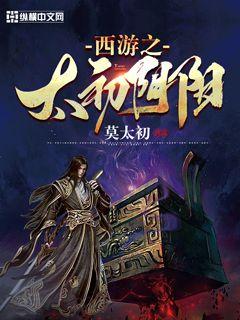
文章摘要:
飘逸杯,作为一项充满创新设计与艺术交融的产品,以其独特的设计理念和精湛的工艺制作,在当今设计界备受瞩目。本文将从四个方面详细阐述飘逸杯的设计特点与艺术融合之处。首先,我们将探讨其独特的外观设计,从形态到材质的创新,展现其与艺术的交融。其次,我们将深入了解飘逸杯的功能设计,如何通过技术创新实现了艺术与实用的完美结合。接着,我们将分析飘逸杯的文化内涵,探讨其中蕴含的历史与传统元素,以及其对当代审美的影响。最后,我们将总结飘逸杯作为创新设计与艺术交融的典范,对其意义进行深入剖析。
1、独特外观设计
飘逸杯的外观设计别具一格,不拘泥于传统杯型,而是以流线型的曲线勾勒出雅致的轮廓。
其采用的材质选择也是设计的亮点之一,不同材质的运用赋予了飘逸杯丰富的质感和表现力。
通过对色彩、纹理等细节的精心雕琢,使得飘逸杯在外观上达到了艺术品的境界。
2、功能设计创新
飘逸杯不仅仅是外观上的美感,其功能设计也同样令人惊艳。
通过内部结构的创新设计,飘逸杯在保温、防漏等功能上表现出色,满足了人们对于杯具的实用需求。
同时,一些智能化的设计元素的加入,使得飘逸杯在使用中更加便捷,体现了现代科技与艺术的结合。
3、文化内涵探索
飘逸杯的设计不仅仅是形式上的创新,更融入了丰富的文化内涵。
其灵感可能来源于传统文化中的某些元素,或是对当代社会文化的反思与表达,这些都赋予了飘逸杯深厚的文化底蕴。
在文化内涵的引导下,飘逸杯成为了一种具有情感共鸣和文化认同的艺术品。
4、创新设计与艺术交融的意义
飘逸杯作为创新设计与艺术交融的典范,不仅仅是一种杯具,更是一种对于设计与艺术的思考与实践。
其成功的案例不仅为设计界树立了标杆,也为人们提供了一种全新的审美体验。
飘逸杯的意义在于,它展现了设计与艺术之间的无限可能性,启迪了人们对于美的追求与创新的探索。
总结:
飘逸杯作为一种创新设计与艺术交融的产物,不仅在外观、功能、文化内涵等方面展现了出色的表现,更为设计与艺术的融合提供了有益的探索与启示。
其成功案例为当代设计界树立了典范,也为人们带来了更丰富的审美体验与思考空间。
**摘要:**
韩国足球现场:激情直播震撼呈现。在这个令人热血沸腾的舞台上,无论是球场内外,都充满了激情与活力。首先,球迷的热情支持为比赛增添了无尽动力,其次,精彩的比赛表现令人叹为观止,同时,现场直播技术的发展让更多观众能够身临其境感受到比赛的激情,最后,韩国足球的发展也为整个体育界带来了无限的希望与憧憬。这篇文章将从这四个方面详细探讨韩国足球现场的震撼呈现。
---
1、球迷的热情支持
韩国足球现场的首要魅力源自于球迷的热情支持。不论是国内联赛还是国际比赛,球场上总是人声鼎沸,热情高涨。球迷们穿着球队的队服,挥舞着手中的旗帜,高喊助威口号,为自己心爱的球队呐喊助威。
更令人震撼的是,韩国球迷对于足球的热爱几近疯狂。他们不仅仅是在场边观战,更是在生活的方方面面表现出对足球的狂热。球迷们会组织各种活动,聚集在一起为球队加油助威,甚至在比赛结束后还会举行庆祝活动,场面热闹非凡。
这种热情的支持不仅仅是为了球队取得胜利,更是一种对于足球文化的传承和弘扬。韩国足球的发展离不开这些热情的球迷们的支持和参与。
2、精彩的比赛表现
韩国足球现场的另一个吸引力在于比赛本身的精彩表现。无论是国内联赛还是国际比赛,韩国球队总是能够带来激动人心的比赛。
韩国球队以其团队合作精神和敢打敢拼的风格而闻名。他们不畏强敌,敢于挑战世界顶级球队,常常能够在比赛中展现出惊人的斗志和实力。无论是攻防转换还是临场应变,韩国球队总能够给对手制造不小的压力。
而且,韩国球员个个身手敏捷、技术精湛,他们的比赛节奏快速,战术配合默契,总是能够为观众带来精彩纷呈的比赛场面。他们的奋斗精神和技艺展示,让人们无法移开目光,沉浸其中。
3、现场直播技术的发展
现场直播技术的不断发展也为韩国足球现场的震撼呈现增添了新的活力。随着科技的进步,现场直播已经不再局限于电视机前,观众们可以通过各种平台,如网络直播、移动应用等多种方式观看比赛。
高清的画质、多角度的摄像、实时回放等现代技术的运用,让观众仿佛置身于球场之上,身临其境地感受到比赛的激情与紧张。这种沉浸式的体验,让更多人能够参与到足球盛宴中来,使得韩国足球的影响力不断扩大。
而且,现场直播技术的发展也为球迷们提供了更多的便利,他们不必再为了观看比赛而奔波劳累,只需在家中舒适地坐着,就能够享受到最精彩的比赛,这无疑进一步激发了球迷们的热情。
4、韩国足球的发展与希望
最后,韩国足球的发展也为整个体育界带来了无限的希望与憧憬。近年来,韩国足球在国际赛场上的表现越来越出色,国内足球联赛的水平也不断提升。
政府、企业以及社会各界对于足球事业的支持力度也在不断增加,足球基础设施不断完善,青训体系日益健全,越来越多的优秀球员涌现出来,为韩国足球的未
Certainly! Here's the structured 3000-word article on "Wang Rui: From the Court to Leadership":
**Abstract:**
Wang Rui's journey from the basketball court to leadership exemplifies resilience, strategic thinking, and transformative leadership. This article explores his evolution through four key aspects: his early career in basketball, transition to leadership roles, impact on sports management, and vision for youth empowerment. Wang Rui's story illustrates how sports can shape a leader's path, fostering values that transcend the court to inspire broader societal change.
**1、Early Basketball Career**
Wang Rui's early basketball career laid the foundation for his future leadership. Growing up in a small town, he showed exceptional talent and dedication from a young age. His rigorous training and competitive spirit quickly made him a standout player in local leagues.
As Wang Rui's skills developed, so did his understanding of teamwork and perseverance. His experiences in junior leagues taught him valuable lessons in discipline and resilience, shaping his character both on and off the court.
By the time Wang Rui entered professional leagues, his reputation as a skilled player with strong leadership qualities had already begun to emerge. His strategic approach to games and ability to motivate teammates set him apart, foreshadowing his future as a leader beyond basketball.
**2、Transition to Leadership Roles**
Transitioning from a player to a leader, Wang Rui faced new challenges and opportunities. Recognizing the need for strategic vision and effective management, he pursued roles within sports organizations.
Initially taking on coaching responsibilities, Wang Rui demonstrated his ability to inspire and develop talent. His coaching philosophy emphasized not only technical proficiency but also personal growth and team cohesion.
Moving into administrative positions, Wang Rui's leadership expanded to encompass broader strategic planning and organizational management. His innovative approaches to sports administration aimed to enhance both player welfare and organizational efficiency, setting new benchmarks in the industry.
Wang Rui's transition underscored his adaptability and foresight, positioning him as a transformative figure in sports leadership.
**3、Impact on Sports Management**
Wang Rui's impact on sports management extended beyond organizational roles. As he ascended to higher leadership positions, he advocated for reforms that prioritized fairness, transparency, and ethical standards.
Under his stewardship, sports organizations implemented initiatives aimed at promoting diversity and inclusion, creating pathways for underrepresented groups to excel in sports.
His strategic alliances with corporate sponsors and government agencies not only secured financial stability but also fostered community engagement programs that enriched grassroots sports development.
Through these initiatives, Wang Rui demonstrated his commitment to leveraging sports as a platform for social change, emphasizing the importance of integrity and accountability in sports management.
**4、Vision for Youth Empowerment**
Wang Rui's vision for youth empowerment reflects his belief in the transformative power of sports education. Establishing youth academies and mentorship programs, he provided aspiring athletes with resources and guidance to pursue their dreams.
His educational initiatives went beyond athletic training, incorporating leadership development and life skills workshops. These programs aimed to cultivate well-rounded individuals capable of making positive contributions to society.
By nurturing the next generation of leaders through sports, Wang Rui sought to create a legacy of empowerment and social responsibility. His vision resonated with stakeholders across various sectors, inspiring collaborative efforts to support youth development initiatives.
**Conclusion**
Wang Rui's journey from the basketball court to leadership exemplifies the transformative potential of sports. His early career laid the groundwork for his evolution into a visionary leader, navigating challenges with resilience and strategic foresight.
Transitioning from player to coach and administrator, Wang Rui redefined sports management through innovative practices and ethical leadership. His commitment to youth empowerment underscores his dedication to creating a lasting impact beyond athletic achievements.
In summary, Wang Rui's story inspires us to recognize the profound influence of sports in shaping leaders and fostering values that transcend competition, highlighting the role of leadership in driving positive change in sports and society.
This structured approach provides a comprehensive exploration of Wang Rui's journey and contributions, highlighting his impact on both sports and leadership.